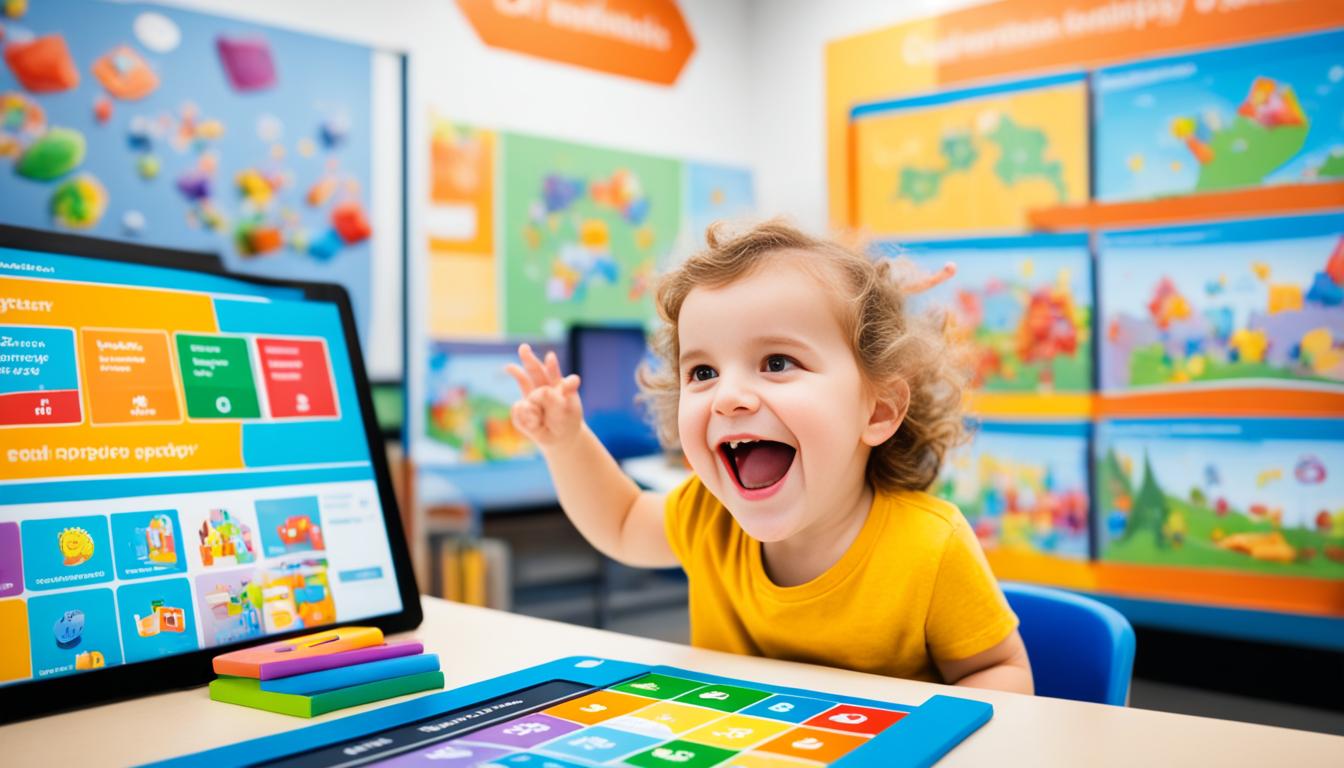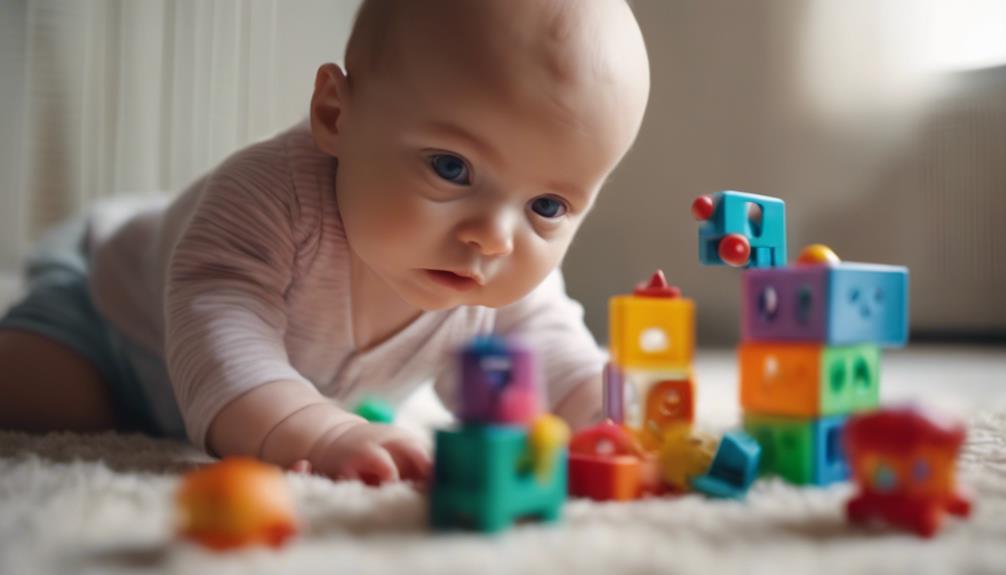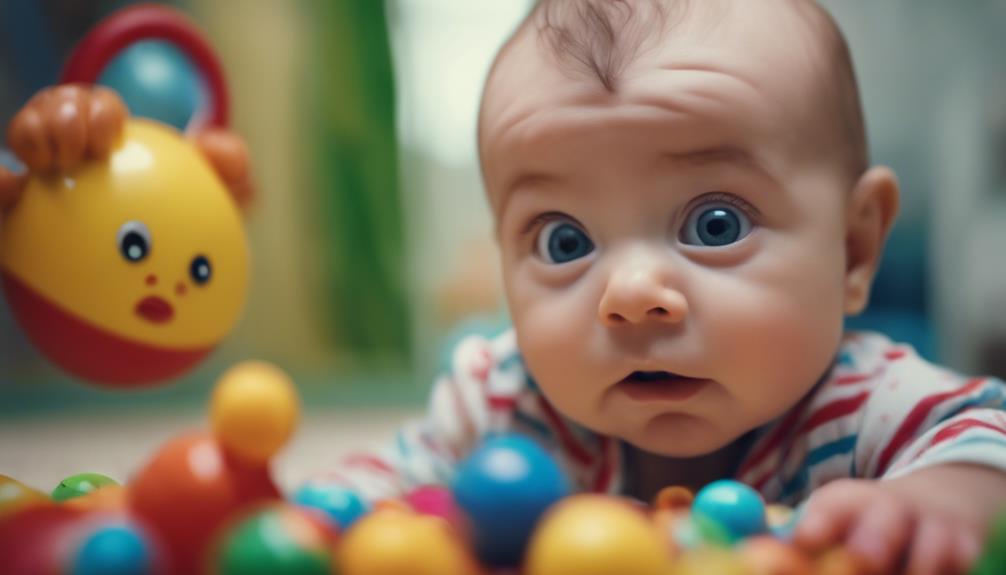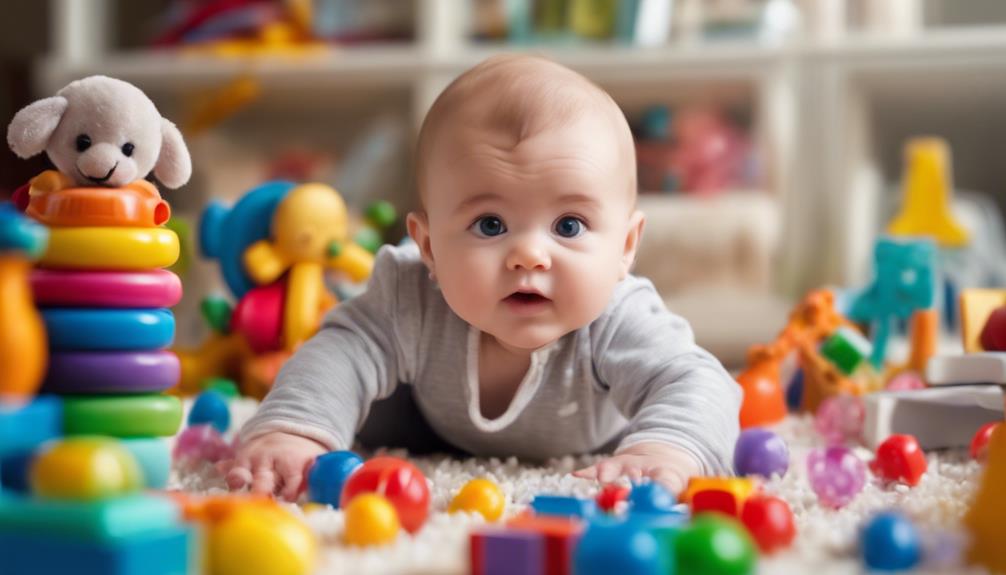Track your gifted baby’s remarkable progress through milestones like vocalizing distinct sounds at 1.61 months and following instructions at 12.46 months. Look for ‘Dada’ around 5.53 months and full name articulation by 25.2 months. Keep an eye on problem-solving skills, advanced reasoning, curiosity, and exploration tendencies. Notice motor skill developments like sitting up at 4.9 months and adaptive object holding at 6.3 months. Socially, observe heightened social awareness and emotional responses. Each milestone showcases your baby’s exceptional abilities.
Key Takeaways
- Gifted babies start vocalizing distinct sounds around 1.61 months old, showcasing early language development.
- They understand cause and effect relationships earlier, demonstrating advanced problem-solving skills.
- Intense curiosity and exploration drive gifted babies to seek out new information actively.
- Advanced motor skills like sitting up alone at 4.9 months are common in gifted babies.
- Gifted babies exhibit advanced social and emotional awareness, showing unique milestones in their development.
Early Language Development
When tracking early language development in babies, observing their vocalization of different sounds can provide valuable insights into their cognitive progression. Gifted children often exhibit advanced language skills at a young age, with some babies vocalizing two distinct sounds around 1.61 months old.
Another significant milestone in early language development is when babies say 'Dada' or an equivalent at approximately 5.53 months, showcasing their growing ability to communicate.
As babies with advanced cognitive abilities progress, they may demonstrate their linguistic prowess by following simple instructions like putting an object on a chair at 12.46 months. By 25.2 months, gifted babies might even be able to articulate their full name, highlighting their advanced cognitive and language abilities at a young age.
Early language development plays an important role in shaping a child's overall cognitive development, and gifted babies often show remarkable progress in this area early on. From babbling their first sounds to forming coherent words and sentences, these language skills are significant indicators of a baby's cognitive and linguistic potential.
Advanced Problem-Solving Skills
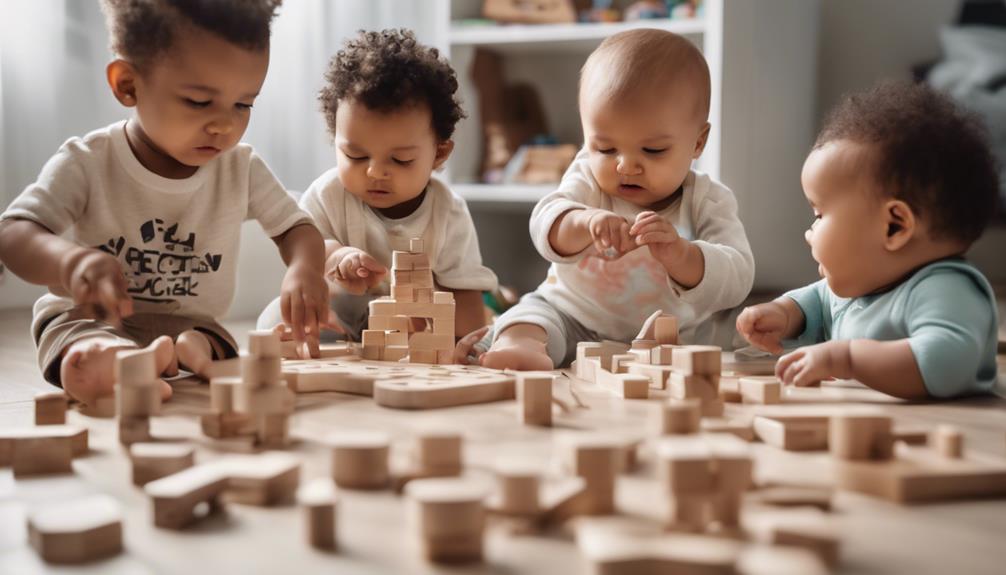
Gifted babies often showcase advanced problem-solving skills by creatively tackling challenges beyond their developmental stage. These children exhibit exceptional reasoning abilities, allowing them to grasp complex concepts and find innovative solutions. Below is a table highlighting some key aspects of advanced problem-solving skills in gifted babies:
| Developmental Milestones | Advanced Problem-Solving Skills in Gifted Babies |
|---|---|
| Early Recognition of Cause and Effect | Gifted babies understand cause and effect relationships earlier than peers. |
| Creative Problem-Solving | These children excel at finding unique solutions to puzzles and tasks. |
| High Curiosity and Persistence | Gifted babies display a strong desire to explore and solve problems, showcasing their cognitive abilities. |
| Exceptional Reasoning Skills | Advanced reasoning is a hallmark of gifted babies, allowing them to tackle challenges beyond their years. |
Observing a gifted baby's problem-solving skills can provide valuable insights into their cognitive development and potential for advanced reasoning.
Intense Curiosity and Exploration
Intensely curious, babies who show gifted traits often display a remarkable drive for exploration from an early age. Gifted infants, especially those identified as profoundly gifted with high IQ levels, exhibit a profound sense of curiosity that sets them apart from other kids. Their insatiable thirst for knowledge leads them to actively seek out new information and engage with their surroundings in a meaningful way. This intense curiosity drives them to explore objects, people, and their environment with a level of depth and understanding that's beyond their years.
Parents of gifted babies may notice their child's advanced exploration skills through their keen observation abilities and their rapid acquisition of new information. These kids may gravitate towards toys, books, and activities that challenge their cognitive abilities, providing them with the stimulation they crave.
Encouraging and fostering this innate curiosity can help gifted babies continue to thrive and grow as they navigate the world around them.
Exceptional Motor Skills
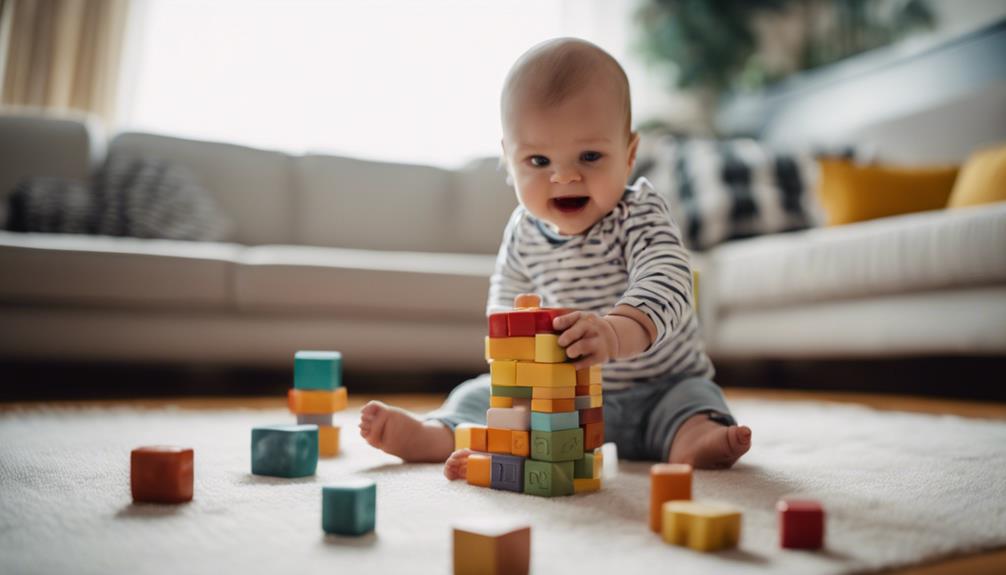
The baby's exceptional motor skills were evident through early achievements such as sitting up alone at 4.9 months and standing alone well at 7.7 months. Gifted children tend to demonstrate advanced motor skills early in child development. Fine motor skills were also a strong suit, with milestones like playing with a rattle at 2.1 months and holding objects adaptively at 6.3 months. Below is a table showcasing some of the notable motor skill milestones achieved by the gifted baby:
| Motor Skill Milestones | Age Achieved |
|---|---|
| Sitting up alone | 4.9 months |
| Standing alone well | 7.7 months |
| Walking on tiptoes | 33.6 months |
| Holding a crayon adaptively | 7.7 months |
| Drawing a person with details | 50.4 months |
These milestones highlight the child's exceptional motor skills and rapid progression in fine motor abilities. Advanced motor skills, such as walking on tiptoes at 33.6 months, further exemplify the gifted baby's physical capabilities.
Social and Emotional Awareness
Early signs of heightened social and emotional awareness in babies often manifest in their interactions with the environment and those around them. Gifted babies show advanced development in social awareness, like making eye contact and engaging in social smiles shortly after birth.
Their early emotional responses, such as sensitivity to noise and surroundings, indicate a high level of emotional awareness. Due to their heightened awareness of the environment, gifted babies exhibit a constant need for stimulation. These emotional responses and social interactions serve as indicators of their advanced cognitive abilities.
Parents of gifted babies may notice unique social and emotional milestones and behaviors that reflect their child's advanced development. By recognizing and nurturing these aspects of social and emotional awareness, caregivers can support the overall development of gifted babies and help them thrive in their interactions with the world.
Frequently Asked Questions
At What Age Can You Tell if a Baby Is Gifted?
You can tell if a baby is gifted as early as a few months old when they show exceptional cognitive, motor, and social abilities. Look for signs like advanced problem-solving, memory, and rapid language development.
How Do I Know if My Child Is Academically Gifted?
To know if your child is academically gifted, observe their early language skills, cognitive abilities, and interest in academic concepts. Look for signs like advanced vocabulary, problem-solving skills, and a thirst for learning new information.
How Are Milestones Used to Track Infant Growth?
To track infant growth, milestones are used as indicators of your baby's development in areas like physical skills, cognition, and social interactions. Monitoring these milestones helps gauge progress and spot potential concerns early on.
How Do You Assess if a Child Is Gifted?
To assess if a child is gifted, observe advanced motor skills, language development, problem-solving abilities, exceptional memory, intense curiosity, and high intellectual abilities. Monitor progress in various domains and consult with experts for confirmation.
Conclusion
To summarize, tracking your gifted baby's milestones is crucial for understanding their development. By monitoring their progress in early language development, problem-solving skills, curiosity, motor skills, and social-emotional awareness, you can guarantee they reach their full potential.
Remember, every child develops at their own pace, so celebrate their unique abilities and support them along the way.
And always remember, a little extra love and attention can go a long way in nurturing their gifted talents.

